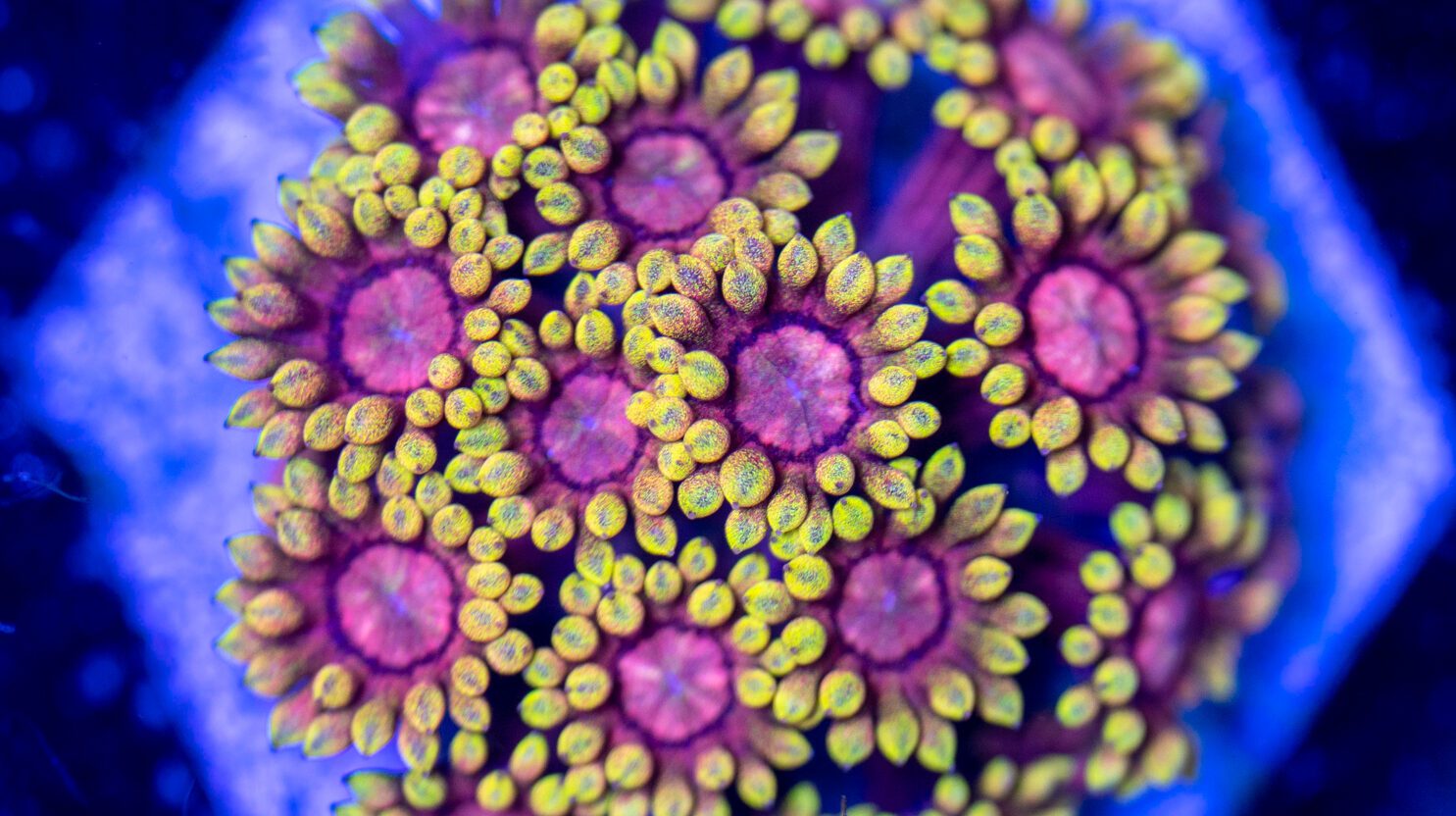We absolutely love Gonipora at DRC, but it is probably the number 1 LPS coral that we have club members struggling with and unable to figure out! After talking to so many of you, asking you to bring in water for testing and troubleshooting your experience together we can share what we think is a significant trend in the struggle to keep Gonipora. The most common experience we’re hearing about is Goni specimens that were long tentacled, flowing flowerpots at the store only to get to their home reef and while they don’t necessarily start loosing tissue, they just don’t really open. They stay recessed and unhappy looking for days and weeks on end. The pattern we’ve seen emerge through trouble shooting these cases has yielded very consistent findings: Phosphates over 0.10.
Many of these reefers don’t know where their Phosphates are at accurately – they just know they’re “low” or think there are none because they’re using a dropper kit. We highly recommend using a Hanna Phosphate ULR meter for successful PO4 management as the dropper kits do not have a degree of accuracy in the low ends that we find necessary.
So what’s happening? It seems to us at DRC that while the range of Phosphates from ~0.11-0.25 isn’t toxic or directly responsible for killing corals, what happens in this range is a power shift in the battle between Reef BioFilm & Micro Algae growth that results in the microalgaes outcompeting the Biofilm. With Corals like Gonipora that retract and extend a great deal throughout the course of time, and occasionally even expose small fragments of skeleton for brief periods, this imbalance is particularly troublesome. When micro algaes can take hold on these spots, it irritates the coral flesh and keeps it from extending, leading to a slow drawn out death.
Another common trend we’ve seen in reefers experiencing this struggle: the use of Phosphate Reducing Media that boasts safety. What I mean by this is, if your PO4 reducing media is developed first and foremost not to overstrip your water of Phosphates, the only way this is possible is with a chemical reaction that becomes less and less effective at PO4 export as you reach lower levels until the export stops. Almost every DRC member relying on one of these more stable options for nutrient management has tested between 0.12 & 0.18 Phosphates. While yes: GFO (granulated Ferric Oxide) can overstrip, don’t be scared of it: use how to learn it and be consistent, only use High Capacity GFO, and make sure you have a reliable method of testing the low ranges of Phosphates in your aquarium.

